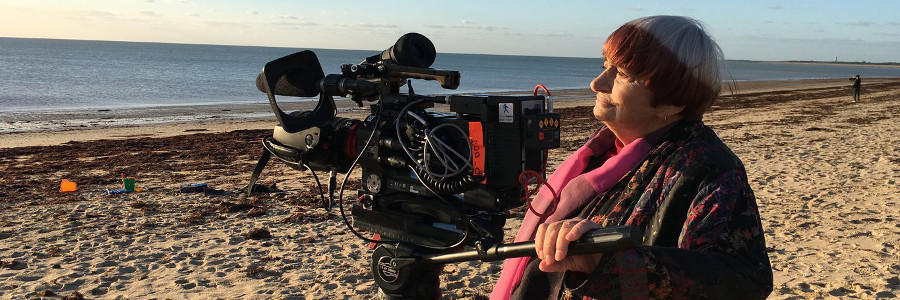“When you decide to look closely at something that may be banal, it is no longer banal.”
In March of 2019, acclaimed artist, feminist, and pioneer of French New Wave cinema Agnes Varda passed away at the age of 90. Only one month earlier, her final film, Varda by Agnes, premiered at the Berlin Film Festival. More than an exploration of Varda’s career, the documentary highlights her humble approach to storytelling, keen eye for the realities of life, and her study of these realities in her work. This distinction defines Varda by Agnes as a fitting final word from a cinematic icon, and guarantees that even those with a casual interest in her work will enjoy it.
Ten years earlier, when Varda was confronting the shock of turning 80 (a confrontation she compares to staring down a freight train), she responded with autobiographical documentary The Beaches of Agnes. Varda by Agnes serves as a coda not so much to this previous film, but to the decade that followed it.
Much of the film, especially in the first half, is formatted as a presentation. At times speaking to a live theatre audience, at others breaking the fourth wall, Varda reflects on the philosophy behind her work, and how it inspired everything from the vibrant melancholy of Happiness to the joy of newfound connection in Uncle Yanco. Her deconstruction is conversational, devoid of ego, yet provides comprehensive understanding of how she took a personal perspective on such themes as death, dreams, and femininity, and turned them into celebrated films.
Personal anecdotes are few and far between, and those present exist only in the context of the work. Discussion of her late husband, Jacques Demy, is mostly limited to references to Varda’s film about his childhood, Jacquot, and there’s no talk at all of the other major figures of French New Wave, including Jean-Luc Godard, whose refusal to appear in Faces Places left Varda visibly shaken. That’s not a total surprise – that the film manages to include as much as it does in its two-hour run time is a feat unto itself – but considering how much of an impact they had in her life and career, they would have been interesting to hear.

Around the one hour mark, Varda by Agnes turns its attention to the digital era of Varda’s career. Here things get a bit more technical, but only so that she can explain how the new technology allowed her to get closer to creating portraits of “real people”. That was always Varda’s goal; she was passionate about showing life as it was. Even her narrative films tended towards documentary, with actors playing a version of themselves, or addressing the audience. It was, for the most part, only later in life that she felt comfortable presenting herself as a subject – a welcome change of heart considering the quality of work that came as a result.
This second half also focuses on Varda’s work as a visual artist, and it’s only here that the film loses some of its potency. In lieu of the humanity that defines the rest of the documentary, we hear about her relationship with international art museums, and see her dressed as a potato to promote an installation. It might bring a laugh, but this segment often feels like a university lecture.
On screen, Varda is sharp and energetic, showing no signs of the illness that would take her life not long after the release of Varda by Agnes. Following its premiere, many doubted that it would really be her final film as she claimed it was. As a final film, it is ideal. As the visual autobiography of one of France’s greatest filmmakers, it’s even better. Fans are sure to love every moment, while aspiring visual storytellers are bound to appreciate the plethora of inspiration it unfurls.
Bravo, Agnes Varda.
—
Varda by Agnes opens ACMI’s Viva Varda retrospective
on June 21st.
